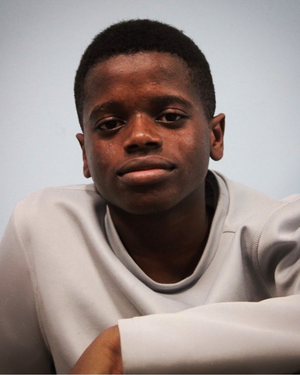I believe that Black History Month is not just a time to remember the history of African Americans but a time to understand the importance of three things: advocacy, activism, and societal progress. Over the years, advocacy in particular has changed our world for the better. As students, my peers and I are aware of leaders such as Martin Luther King Jr., Maya Angelou, Rosa Parks, and Malcolm X. But what made them important advocates and remarkable leaders is their common passion for change, progress, and peace within our community—which is why Black History Month means so much to me.
In the fifth grade I had a Black teacher for the first time, which was important to me because as a Nigerian American boy I never felt heard, seen, or represented in my school. But that year I finally felt heard, seen, represented—and most importantly, understood. That year I made great strides in learning more about who I was, what kind of person I wanted to be, and how I could start my journey.
That year I also decided to join my school’s student council and Black SAGA club, a competition-based club where students from various schools compete against each other based on their knowledge of important Black individuals. Participating in this club and in student council taught me valuable public speaking skills, team-building skills, and advocacy skills.
A few years later, I took the necessary steps to speak for myself and my community by cofounding a club in my school called the Perry Hall Middle School Diversity Advocacy Student Association (DASA). The group’s purpose is to provide a safe community for all students seeking to increase Diversity, Equity, and Inclusion (DEI) in the school. It is an organization that advocates for the needs of students, while empowering and educating them about everyone’s experiences. DASA enables students from a variety of ethnicities and cultural backgrounds to connect with each other and share their passion for DEI.
In the last two years, the club has made progress in connecting a group of students with the same agenda as well as impacting all students around the school. The club has sponsored spirit days, school events, and other educational projects. For Black History Month this year, the club hosted a black out day on the first of February and will host another one on the last day of the month. A black out day is a spirit day when students wear all black to support Black History Month. The club is also creating a video project educating students about diversity and inclusion, advocacy and activism, and unity.
Black history means a lot to me because it made me recognize that I am capable of anything, and that I’m heard, represented, and understood. Black history also helped me find myself and learn to positively impact my community. So, while we continue to observe Black History Month, let’s remember the significance of advocacy, activism, and societal advancement, and the role Black history has played in all of them.
Visit www.natstuco.org/ to learn more about National Student Council (NatStuCo).


1 Comment
David,
I am a professor of educational leadership at a state university. I was so impressed with your article entitled “What Black History Means To Me” that I posted it to my online announcements board for my school leadership internship course. There will be 35 future school leaders who will read your article and hopefully embrace and share your excellent thoughts about peaceful advocacy, activism, and societal progress. Well done!